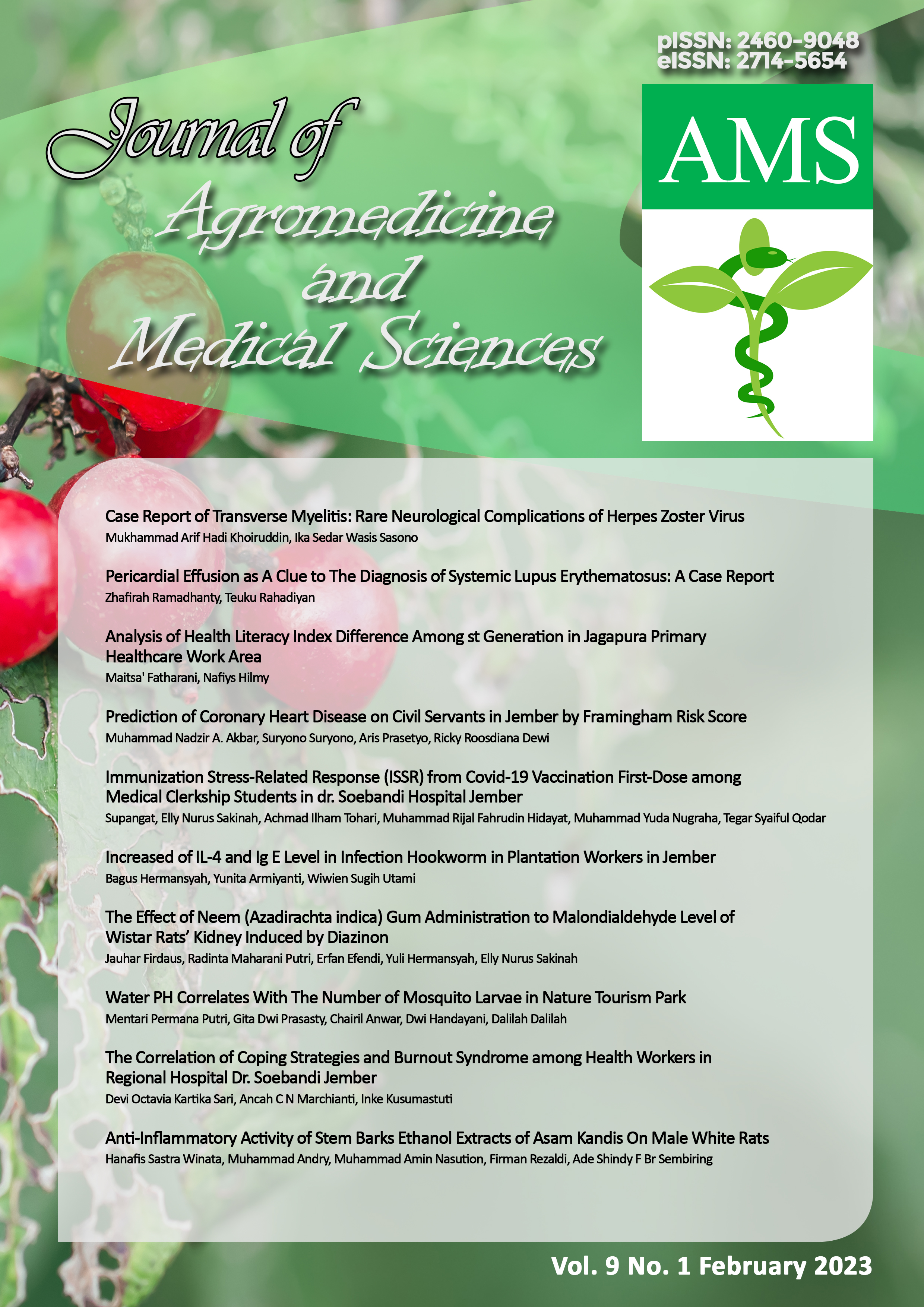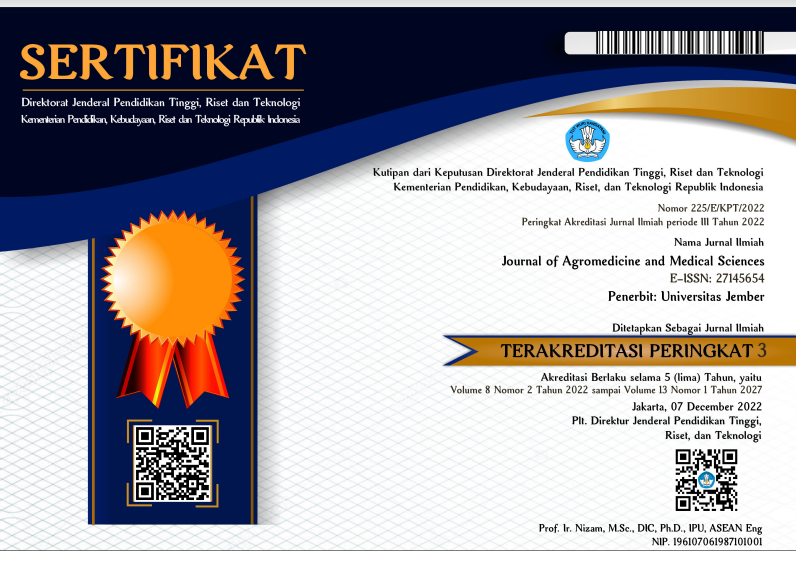Anti-Inflammatory Activity of Stem Barks Ethanol Extracts of Asam Kandis On Male White Rats
DOI:
https://doi.org/10.19184/ams.v9i1.37478Abstract
Inflammation is a complex series of changes in tissue due to tissue injury caused by bacteria, trauma, chemicals, heat, and pain. Gamboge (Garcinia xanthochymus) is a fruit-bearing tree native to Southeast Asia. Plants of the genus garcinia are rich in secondary metabolites such as flavonoids, steroids, and triterpenes which have potential pharmacological activity. This study aimed to determine the anti-inflammatory activity based on the reduction in edema volume of Gamboge (Garcinia xanthochymus) stem bark. The inquiry was experimental. Through maceration, an ethanol extract of the gamboge stem was created. The animals were divided into five groups, each containing five white male rats. The test given was a suspension of gamboge ethanol extract at doses of 200, 400, and 600 mg/kgBW, a negative control of 1% Na CMC suspension, and a positive control of 2.25 mg/kgBW sodium diclofenac. Observations were made for 6 hours, and then data were analyzed using a two-way analysis of variance (ANOVA) test. The results showed that gamboge ethanolic extract was proven to have an anti-inflammatory effect in white male rats induced by carrageenan starting at doses of 200, 400, and 600 mg/kgBW, marked by a significant difference to the negative control (p<0.05). The 600mg/kgBW dose group showed no significantly different results from the positive control group (p>.05). These results concluded that the dose group 600mg/kgBW was the best dose of gamboge stem ethanol extract had an anti-inflammatory activity based on reducing the volume of leg edema of white male rats.
Keywords: Asam Kandis Stem Bark; Anti-Inflammation; Male White Rats























